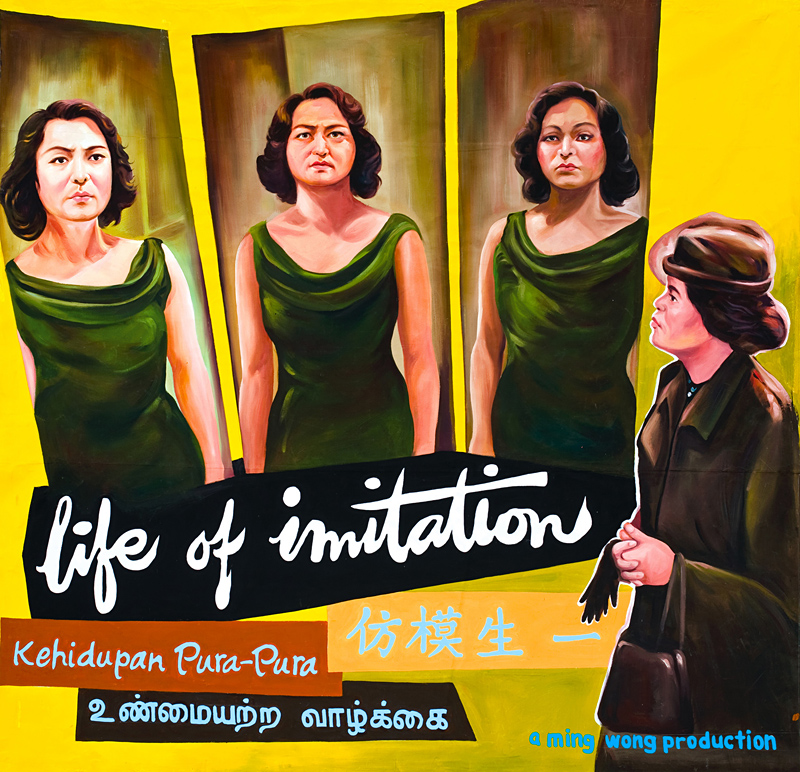The central conceit of young Singapore artist Ming Wong‘s video installations in Life of Imitation sounds like the rather simple, tired appropriation of old images. He remakes scenes from films, including Imitation of Life and In the Mood for Love, using non-actors (himself included) speaking languages they don’t always understand, with the performers sometimes swapping roles (and ethnicities) from shot to shot. It’s like drag times three, a reflection of Singapore’s polyglot history. That country’s briefly flourishing postwar film industry, which collapsed upon independence from Britain in 1965, had separate star systems for Malay- and Cantonese-speaking performers; English, too, was widely spoken under colonial rule. As Wong cheerfully admitted during a preshow tour, it’s a glamorous and often licentious period he experienced only on VHS and DVD. “A whole cultural memory has been lost, and it’s such a pity,” he says. Cleverly set in three cinemas (making the Frye a multiplex!), his videos are lovingly mistranslated recreations—”to find out what we lost,” he says. The show’s supporting artifacts are no less nostalgic: old movie-star glossies, publicity and advertising materials, and eye-popping posters. (One melodrama promises “Tears that brim the river of love!”) What redeems the show from mere kitsch and fanboyism is its sad, historical aspect: We can always watch the old movies by Douglas Sirk or Wong Kar-wai, but the old, mixed culture of Singapore can never be duplicated.
The Fussy Eye: Lost in the Movies, Lost at the Movies
The Frye turns into a multiplex.








